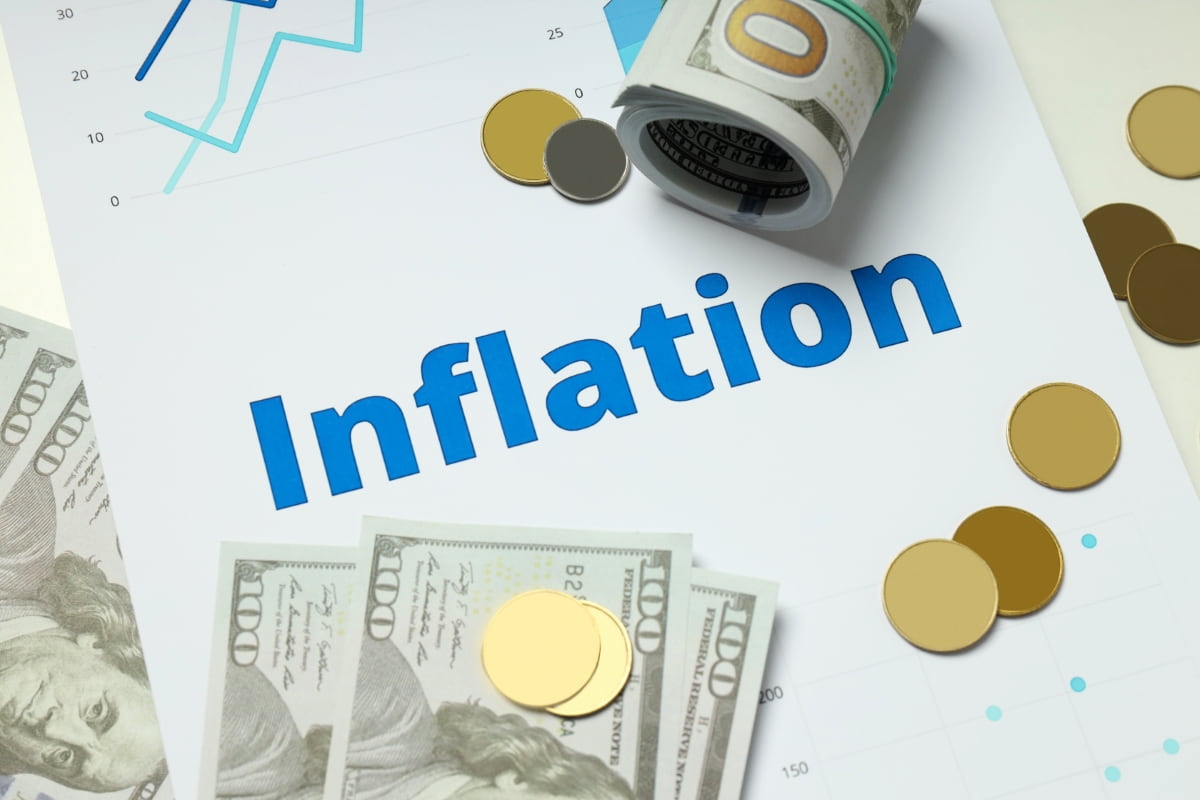Navigating the complexities of retirement planning is a daunting task, further complicated by the impact of inflation on your retirement plan. Understanding how inflation affects your savings is essential to build a resilient and effective retirement strategy.

Impact of Inflation on Your Retirement Plan
Relationship Between Inflation and Retirement Planning
Understanding the relationship between inflation and retirement planning is crucial for anyone looking forward to a financially secure retirement. When planning for retirement, many people consider current expenses, expected returns, and desired lifestyle but often overlook the impact of inflation on your retirement plan. The inflation calculator is a valuable tool that helps estimate future costs based on the current inflation rate, allowing for a more accurate prediction of expenses during retirement.
Another essential aspect to consider is the inflation-adjusted retirement calculator, which tailors your retirement savings, factoring in the changing value of money over time. The sooner you begin saving for retirement, the smarter it is. What are the advantages of saving for retirement at an early age? Primarily, it allows your savings more time to grow and compound, providing a buffer against inflation.
How Inflation Erodes the Purchasing Power of Your Retirement Savings
Inflation subtly reduces the value of money over time, eroding the purchasing power of your retirement savings. For instance, an item costing $100 today might cost more in the future due to the current inflation rate. The rising prices mean your money will buy less later, so it’s important to consider inflation when planning for retirement. Even with a significant amount saved up, you might find the actual value of your savings diminished due to the relentless rise in the cost of living.
Mitigating the Effects of Inflation on Your Retirement Income
Several strategies can help mitigate the effects of inflation on your retirement income. One pivotal strategy is diversification in your investment portfolio. What is diversification, and why is it important when you invest? Diversification involves spreading investments across various assets to reduce risk.
In case you missed it: Everything You Need to Know About Student Debt Forgiveness Plans in the United States

It ensures that your investments are not overly exposed to a single asset class, helping to preserve your retirement savings against market volatility and inflation. The goal is to have investments that may respond differently to economic events, providing a balance and safeguarding retirement savings from potential adversities such as inflation.
The Importance of Factoring Inflation into Your Retirement Plan
Factoring inflation into your retirement plan is not merely an option but a necessity. It is imperative to understand that the cost of living will likely be higher, and planning should be done accordingly. By incorporating expected inflation rates into your retirement planning, you can better estimate your future expenses and ensure that your retirement savings are sufficient to maintain your desired lifestyle. Inadequate planning regarding inflation could lead to a shortfall in your retirement income, forcing you to compromise on your lifestyle or find alternative income sources.
Strategies for Protecting Your Retirement Savings from Inflation
Adopting robust strategies for protecting your retirement savings from inflation is essential. Investing in assets that historically have offered protection against inflation, such as real estate or commodities, could be beneficial. Additionally, considering investments that offer returns above the inflation rate, like stocks, can also be a wise move.
Another approach could involve allocating a portion of your portfolio to inflation-protected securities, which are specifically designed to guard against inflation. Choosing such investment avenues helps ensure your retirement savings retain their purchasing power over time.
Long-Term Effects of Inflation on Retirement Nest Eggs
Inflation has profound long-term effects on retirement nest eggs. Over an extended period, even a low inflation rate can significantly reduce the purchasing power of your savings. This could mean that your retirement savings may not be sufficient to support your anticipated lifestyle throughout retirement.
Understanding these potential long-term effects is crucial to planning effectively, ensuring you can maintain your desired lifestyle and not outlive your retirement savings. A clear understanding and a well-thought-out strategy to counter inflation are instrumental in protecting your retirement nest egg and ensuring it serves its intended purpose.
Adjusting Your Retirement Plan to Account for Inflationary Pressures
Adapting your retirement strategy to account for inflationary pressures is essential for maintaining your desired lifestyle throughout retirement. You must regularly review and adjust your retirement plan, ensuring that your savings and investments align with the current economic climate of fluctuating inflation rates.
This might involve recalibrating your investment portfolio, altering your savings rate, or revising your retirement goals and timelines. Being proactive and making necessary adjustments to your retirement plan in response to inflationary trends enhances the likelihood of achieving a financially secure and fulfilling retirement.
Inflation’s Impact on Social Security Benefits in Retirement
Inflation significantly influences Social Security benefits in retirement, affecting the actual value of your benefits. While Social Security benefits are adjusted annually based on the Consumer Price Index to offset inflation’s effects, these adjustments might not always keep pace with your rising expenses.
In case you missed it: Government Loan for Startup Business in India: Eligibility and Application Procedure

Therefore, relying solely on Social Security benefits for retirement income might not be sufficient due to the eroding purchasing power caused by inflation. It’s advisable to consider additional savings and investment strategies to complement your Social Security benefits, ensuring that you have multiple income streams in retirement to mitigate inflation’s impact.
Balancing Risk and Reward in an Inflationary Retirement Environment
In an inflationary retirement environment, balancing risk and reward becomes a crucial aspect of your retirement planning. While seeking investments that offer higher returns to outpace inflation, it’s essential also to manage the associated risks prudently. Diversification becomes a cornerstone in this balance, allowing you to spread risks across various investment avenues. Adjusting your investment plan for inflation means making smart choices based on how much risk you can handle and what you want for your retirement savings. This helps your money grow steadily and protects it from unpredictable market ups and downs.
Preparing for Future Inflationary Trends in Your Retirement Strategy
Incorporating considerations for future inflationary trends in your retirement strategy is indispensable for long-term success. This entails staying abreast of economic indicators, market trends, and forecasts, allowing you to make well-informed adjustments to your retirement plan as necessary.
Preparation involves diversifying your investment portfolio, ensuring liquidity, and maintaining a flexible approach to adapt to the dynamic economic landscape. Building a retirement strategy that is resilient against prospective inflationary pressures ensures that your retirement savings maintain their value and purchasing power, providing you with sustained financial security throughout your retirement.
Frequently Asked Questions (FAQ) on Inflation on Retirement Plans
How does Inflation Affect Retirement Plans?
Inflation diminishes the purchasing power of your retirement savings, causing a potential shortfall in expected funds. In the future, you might need to change how you save and invest to keep living the way you want in retirement.
Should I Account for Inflation in Retirement Planning?
Accounting for inflation is critical in retirement planning to ensure your savings sustain your lifestyle. Inflation impacts the real value of your savings, making it essential to factor into your financial calculations and strategies.
What is the Inflation Strategy for Retirement?
An inflation strategy for retirement involves diversifying investments and periodically adjusting your portfolio to safeguard your savings against inflation’s eroding effects. Employing strategies like investing in assets that historically outpace inflation helps preserve the purchasing power of your retirement funds.
In case you missed it: The Pros and Cons of Investing in Index Funds

Conclusion
Recognizing and strategically planning for the impact of inflation on your retirement plan is vital for sustaining your desired lifestyle post-retirement. By implementing robust strategies and making informed adjustments, you can navigate the challenges that inflation presents, ensuring a secure and prosperous retirement.
- Handicraft Making at Home: A Small Profitable Business Idea
- Pet-Tech Startups: Innovations for Animal Lovers
- Tech Repair Services: Meeting the Demand for Gadget Maintenance
- Maximizing Rewards: Smart Credit Card Habits for Cashback and Points
- Ultimate Guide to Making Money from Goat Milk Business
- How to Start an Agricultural Value Added Product Business
- Value-Added Business Ideas for Greenhouse: The Best Ways to Make Profits with Greenhouse Farming
- How to Make Profits with Organic Country Chicken: Best Strategies for Beginners
- 10 Value-added Business Ideas for Millets: Low-investment and Highly Profitable